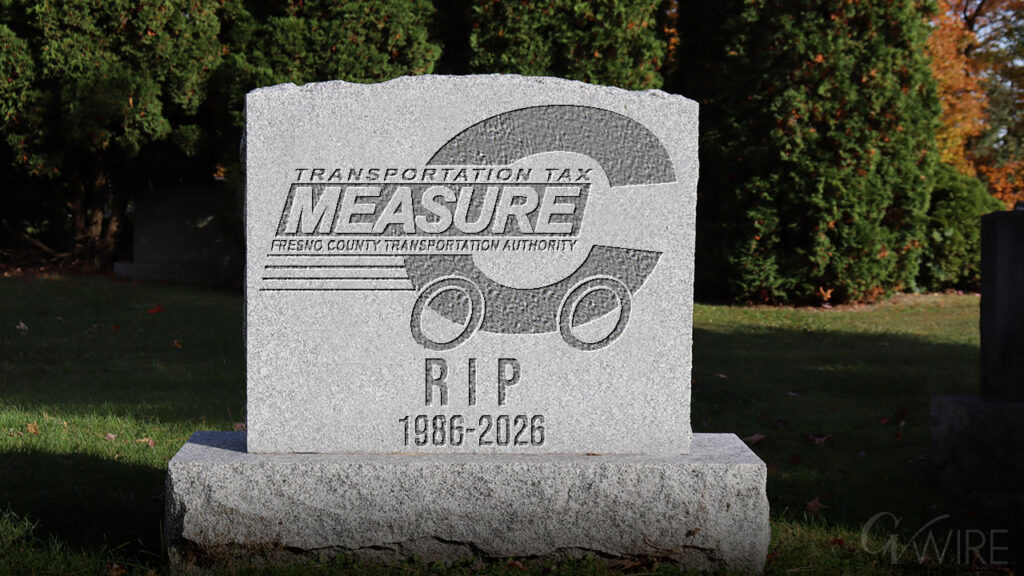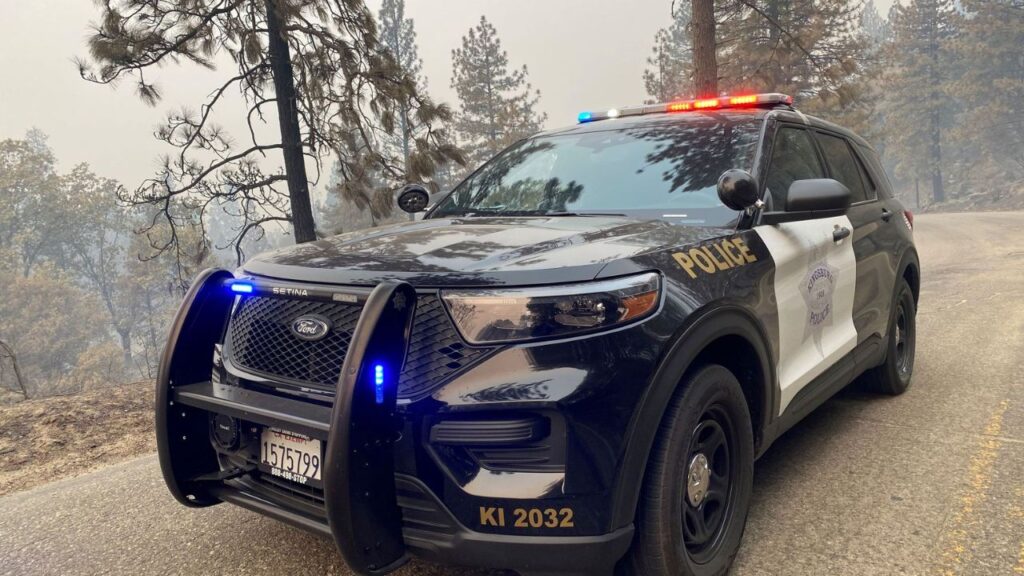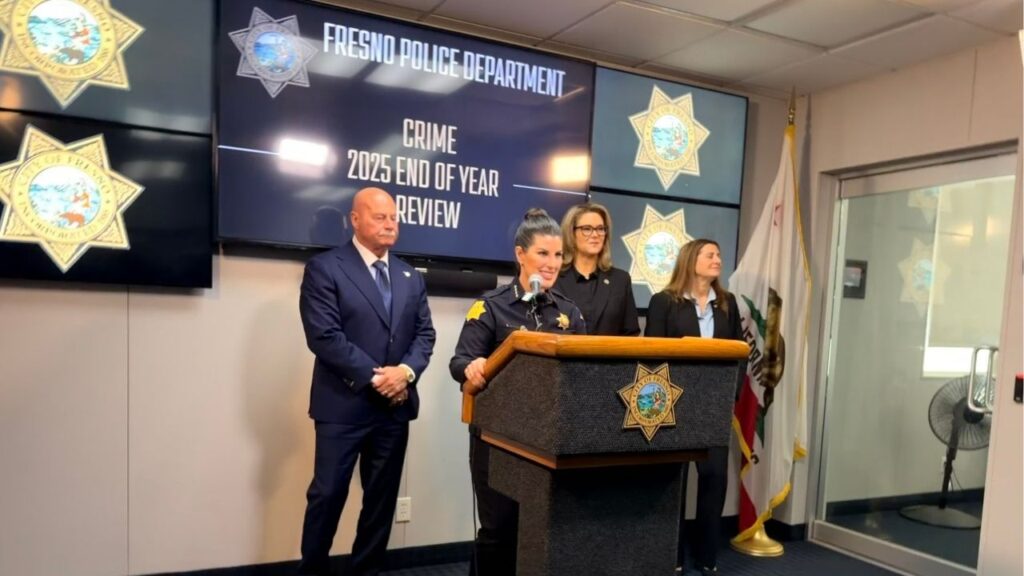Share
Gina Diaz-Nino considers herself an extrovert. But since her mouth began deteriorating after years of methamphetamine use and two fights, she receded into the shadows.
Her teeth are yellow, crooked and browning around the corners. Most of her top teeth are either chipped, missing or decaying. When they fell out, they crumbled like chalk.

Manuela Tobias
The Fresno Bee
Missing teeth get in the way of everything for the 39-year-old Fresno resident. She used to work as an office assistant for a gastroenterologist and dreams of opening her own thrift store. But for now, she’s stuck doing odds and ends service jobs through the phone or eBay, and avoids opening her mouth at all costs.
“Even with church, I can have nice clothes and I’m ready to go to church and I’ll stop and look in the mirror and I don’t smile because if I look, I will not go. I will just start crying. Because it doesn’t match. My clothes doesn’t match my face.”
Many things can get in the way of advancing out of poverty: The lack of a car to get to work. Failing to secure a high school diploma or college degree. Even a smart-looking outfit to wear to a job interview.
It’s almost never talked about, but the tacit discrimination people face because of their crooked or missing teeth can be devastating. Many will never know why they didn’t get a particular job, or were laid off.
Interviews with Medi-Cal patients, advocates and dentists show that some people on Medi-Cal have had to pull their own teeth. Others had their dentures stolen. They have tried to access dental services over the years, but were unable to navigate the complicated system, and lost faith when their only option was teeth removal. Others found coverage for more complicated services, but struggled to gain quality care.
Diaz-Nino tried going to multiple dentists with her Medi-Cal card over the years, but what was a covered benefit during one visit was no longer covered the next time around. The only service dentists offered consistently were extractions. She considered having her teeth pulled to get a denture, but her friends told her horror stories of their ill-fitting dentures, and she wanted to keep the teeth she still had. Now, she’s hoping a dentist will step up and help her fix her teeth for the estimated $4,000 through her GoFundMe campaign.
Medi-Cal Coverage Is Spotty
Partial dentures are now covered under a recent Medi-Cal expansion, as are some crowns. But due to low reimbursement rates and a cumbersome authorization and reimbursement process, some dentists — out of an already limited pool of dentists who accept Medi-Cal — don’t perform the full range of covered services.
About one-third of California’s licensed dentists take some Medi-Cal patients in their practice, according to statistics from DHCS and Kaiser Health Foundation. But many dentists accepting Medi-Cal are usually only seeing a few patients, according to Paul Glassman, assistant dean for research at California Northstate University‘s College of Dental Medicine.
The Department of Health Care Services reported under a quarter of the 7.6 million adult Medi-Cal patients went to the dentist last year. That’s a mere percentage point higher than it was the previous year, when only basic dental services were covered, and reimbursement rates for dentists were up to 40% lower. (Adult dental services were eliminated in 2009, partially restored in 2014 and fully restored in 2018.)
“I think a one percent increase is disgraceful,” said Pedro Nava, chairman of the Little Hoover Commission, an independent state oversight agency that studied the department for a comprehensive report in 2016. “If these folks were in the private sector, they’d be out of a job.”
DHCS attributed the low participation rate to people not prioritizing their dental health. But interviews with over a dozen dentists, advocates and patients suggest low participation rate in the $2 billion program is because of the challenges dentists face in getting paid for their work.
Dentists are wary of a fickle system that might go away as quickly as it came back. They complain that rates remain at around a third of what commercial insurance pays, and it can be nearly impossible to get some covered services authorized and then reimbursed.
More complicated dental treatments require pre-authorization from Medi-Cal, so dentists must send the required paperwork and X-rays before beginning work. If the X-ray is not up to par, or the wrong tooth is labeled, the claim is rejected. The option to submit claims through an online portal has sped up authorization for some providers. But approval of certain covered services continues to vex dentists.
John Blake, executive director of the Children’s Dental Health Clinic in Long Beach, said he struggles to get the green light on deep cleanings, which are a covered benefit.
“It’s very rare that they’ll approve that,” Blake said. “But we have patients that really need it and it still comes back denied. It puts the dentists in a tough position. Unfortunately what I end up doing, is I just do it for free.”
But an approval does not guarantee smooth sailing. Some dentists who accept Medi-Cal Dental are still waiting for reimbursements for services they performed three to four months ago, according to Erwin Garrido, an administrator for Fresno’s Dental Transformation Initiative, a program to increase children’s usage of their Medi-Cal Dental benefits.
Dentists’ complaints echo what the Little Hoover Commission chairman found when they investigated the program in 2016.
“The department was extraordinarily concerned about fraud,” Nava said. “And they were worried that authorization for certain services without what I consider to be very burdensome review would lead to fraud. But the consequence of that was that both patients and dentists would get very frustrated because of the delay in getting an approval and then delay in getting payment.”

Squandered Employment Opportunities
Another Fresno resident, Delilah Garcia, 38, works in construction. She struggled for years with a chipped front tooth. She lost it in her twenties, when a bar fight broke out as she sat at dinner with her family, and a bottle of wine smashed her face.
Her temporary jobs never offered insurance, so she relied on Medi-Cal. But whenever she showed her card to dentists, they turned her away — unless she wanted her teeth removed. So she would get temporary fillings out of pocket, which ranged between $75 and $150, and rarely stayed on or matched the color of her teeth. A permanent filling, between $300 and $1,000, was out of reach — she had bills to pay and her children came first.
Fillings are now covered under the Medi-Cal expansion. But Garcia was unable to find a dentist who would take care of her teeth through Medi-Cal.
Dr. Paul Hsiao, a dentist in Fresno who takes Medi-Cal patients, said he has provided large fillings to Medi-Cal patients for free before running an authorization because “payment is usually denied.”
When Garcia went in for an interview at a construction firm last year, she did her usual routine. She hovered her right hand over her mouth every time she spoke. And instead of smiling, she tilted her head, glued her lips shut and tilted the corners up into a tight smile. The firm told her they would call her back, but like most of the jobs she interviewed for, they didn’t.
“You’re trying to put your best foot forward but you can’t, because your tooth is not there,” Garcia said.
She got the filling she needed for free at the Holy Cross Clinic, which operates out of the Poverello House, a homeless shelter in Fresno. The eight dentists and one hygienist, all of whom are volunteers, served 302 patients between May of 2018 and 2019.
Last month, after her dental visit, she got a call from the construction firm about an opening. Thanks to her fixed tooth, she felt she could be herself during the interview. At the end, one of the hiring managers who interviewed her last year confirmed what she thought was the reason she hadn’t made it the previous round.
“You finally fixed your tooth!” he congratulated her. She got the job, which pays $70 an hour, as well as extensive dental coverage through her Aetna insurance.
Garcia’s experience rings true to employment professionals in Fresno. Patrick Turner, employment and training assistant director at Fresno’s Economic Opportunities Commission, said that employers have never told him they wouldn’t hire someone because of bad teeth. But the interviewee’s lack of confidence ruined their chances.
“They’re just trying to hide their teeth,” Turner said. “It comes across as they are severe, maybe not so open. As humans we look for smiles, we look for them to be engaging, so if you won’t smile it gives the interviewer an off-putting effect.”
According to the American Dental Association, 31 percent of low-income Californians said the appearance of mouth and teeth affects their ability to interview for a job.
As with Delilah’s temporary jobs, agricultural jobs paying minimum wage rarely offer dental benefits. Workers then rely on Medi-Cal to take care of their teeth. But the system remains extremely difficult to navigate, even after the expansion of services. So workers end up taking out costly credit, or attending free dental clinics.
Ofelia Morfin, who plants and harvests grapes for a living, doesn’t qualify for Medi-Cal. So when she was having to take excessive pain medications and even skipping work because of pain in her molars, she decided to go into a free clinic a friend had told her about — the same Holy Cross clinic Delilah got her front tooth fixed. There, Dr. Richard Jennings, a volunteer dentist, removed the two back molars causing her pain.
“Thank God this place exists because it’s a great help to those of us that really need it,” Morfin said in Spanish.
Fresno’s Homeless Residents Feel the Brunt
Full dentures have been a covered benefit for Medi-Cal enrollees since services were expanded in 2014. But poor fittings have made them nearly useless for some of Fresno’s homeless residents.
Mary Caro, a homeless Fresno resident, got her dentures through Medi-Cal in 2001. But another woman stole them. She got a replacement a few years ago, but it causes too much pain, so she leaves it in her trailer. Juanita Romero, another homeless resident, got her dentures through Medi-Cal. But they hurt so much she only wears them to eat.
Katherine Miranda loves her top dentures, which she has had for 15 years. She smiles often. But her bottom set was painful to wear, so she never did.
“My (bottom) gums have gotten so tough I can even eat meat and corn,” Miranda said.
People living in poverty often rule themselves out of the dental care system because they perceive it as a luxury reserved for the rich, according to Paul Glassman, assistant dean for research at California Northstate University‘s College of Dental Medicine.
Thomas Fuentes, another homeless Fresno resident, lost most of his teeth due to drug use. But he never went to the dentist, because he didn’t feel pain.
“I haven’t gone to the dentist for years because they haven’t been hurting,” Fuentes said. “When they do, I just pull them out.”
Dwayne Youngblood, a 57-year-old Selma resident, was excited to learn that he would be able to eat steak and tacos again on a visit to the dentist last year. He has been living off soft foods like potatoes and Spam for years because he is missing most of his teeth. The dentist made an appointment for him, six months from then, for his teeth to be extracted so two sets of dentures could be made.
“I was in the hair business. You’re supposed to look beautiful. You can’t get a job when you’re looking ugly. I haven’t even tried because I know they’re not going to give me a job looking like this.”
But between that time, he lost his state photo ID in a fire that ravaged his home. The state requires providers to verify Medi-Cal card holders’ identity. With only $96 a month from General Relief, he has been unable to secure transportation to the DMV or apply for a new ID.
Private arrangements are helping to put band-aids on the problem. But not at a grand scale.
When the Light-House Recovery Program, which helps women in Fresno struggling with substance abuse, treated a woman with severe dental needs, program director Vikki Luna reached out to Fresno dentists asking for help. One dentist volunteered his services for free.
When a client at Workforce Connection in Fresno needed new teeth to get a job, the organization found a dentist and paid for the dental treatment she needed.

What Is the State Doing?
Advocates say legislative efforts have moved the needle in the right direction.
Funding from the Proposition 56 tobacco tax allowed for the restoration of adult dental services and increased reimbursement rates for many services by 40 percent. DHCS simplified the paper application process for providers, created a digital application and released a handbook describing Denti-Cal policies, procedures and billing instructions.
The majority of outreach funds are going towards outreach to children. The federal government mandates Medicaid cover children’s dental health, while adult coverage is optional. The state is trying to increase participation among Medi-Cal children, about half of whom visited the dentist last year, through the Dental Transformation Initiative, which cost $740 million over five years.
“California has made a lot of investment in children’s oral health through programs like the Dental Transformation Initiative,” said Carolina Valle, policy manager at the California Pan-Ethnic Health Network. “Those kinds of innovative programs are lacking for adults.”
Valle added that many community members don’t know the breadth of services they are entitled to because the consumer handbook they receive are not understandable.
The Medi-Cal handbook is translated to the top threshold languages. But it is laden with legal jargon that most people can’t grasp. Valle reported non-English speakers feel uncomfortable asking questions or filling out forms when no one at the dental office speaks their language.
Citing high costs, Governor Gavin Newsom vetoed a bill that would require simpler writing and field testing for reading materials handed out by Medi-Cal.
Newsom’s 2019-20 budget includes $98 million to expand Medi-Cal coverage to income-eligible undocumented adults aged 19 to 26 starting in January 2020. The administration estimates approximately 90,000 undocumented immigrants will benefit from this proposal.
At the federal level, the Medicare Dental Benefit Act of 2019 would add a dental benefit to Medicare and increase reimbursement to states that choose to cover adult dental benefits in their Medicaid program, like California.
But critics say the cost of everyone’s dental care should not fall upon the state.
David Wolfe, legislative director at the Howard Jarvis Taxpayers Association, called the expansion of services unsustainable.
“We need to be mindful of the benefits we are providing to be sure they will be there in good times and bad. Nobody wants to see this expansion of services only to see them go away when times are bad. That’s not fair to people. I don’t know that legislators have thought that reality through.”
A More Targeted Solution
The University of Utah’s School of Dentistry identified the link between people suffering from substance use disorder and damaged teeth in 2015. With a federal grant from the Health Resources and Services Administration, the dentistry school began providing comprehensive oral care to a group of around 300 individuals receiving treatment for their substance use disorder.
At discharge, patients who received dental care were about twice as likely to get a job and to abstain from drugs than their counterparts who received treatment but did not get oral care. Homelessness among patients who received treatment decreased by 62 percent.
Glen Hanson, director of the dentistry school, said the secret was in improving patients’ quality of life. Patients smiled constantly when they got their teeth fixed. Their sense of self worth, confidence and communication skills soared. Nutritious foods, like fruits and vegetables, replaced high-carb liquid foods in their diets.
Unlike California, Utah does not offer all Medicaid recipients dental coverage. But as a result of the program, extended dental coverage that was only available to pregnant, disabled or blind people to Targeted Adult Medicaid patients. These patients are characterized by their history of substance use disorder, homelessness and mental health problems.
Destiny Garcia, a patient of the program, received dental care in conjunction with her substance use disorder treatment. Before completing dental treatment, she skipped several job interviews and quit a job at Build A Bear Workshop because she felt that her outward appearance didn’t match the improvement she felt inside. Garcia is now an office assistant at the Salt Lake County mayor’s office.
“When you walk in, I’m the first face you see,” Garcia said. “I’m also the last face you see. Today I sat in the steering council meeting, taking minutes. That’s an opportunity I would’ve never had if I looked like I was a drug addict.”
Employment isn’t the only thing Garcia gained by fixing her teeth. She finally feels comfortable enough to be herself among her friends and family.
“I can kiss my baby and not feel ashamed. Without teeth, you don’t wanna show your mouth to anybody, including your kids.”

Manuela Tobias is a journalist at The Fresno Bee. This article is part of The California Divide, a collaboration among newsrooms examining income inequity and economic survival in California.
Categories
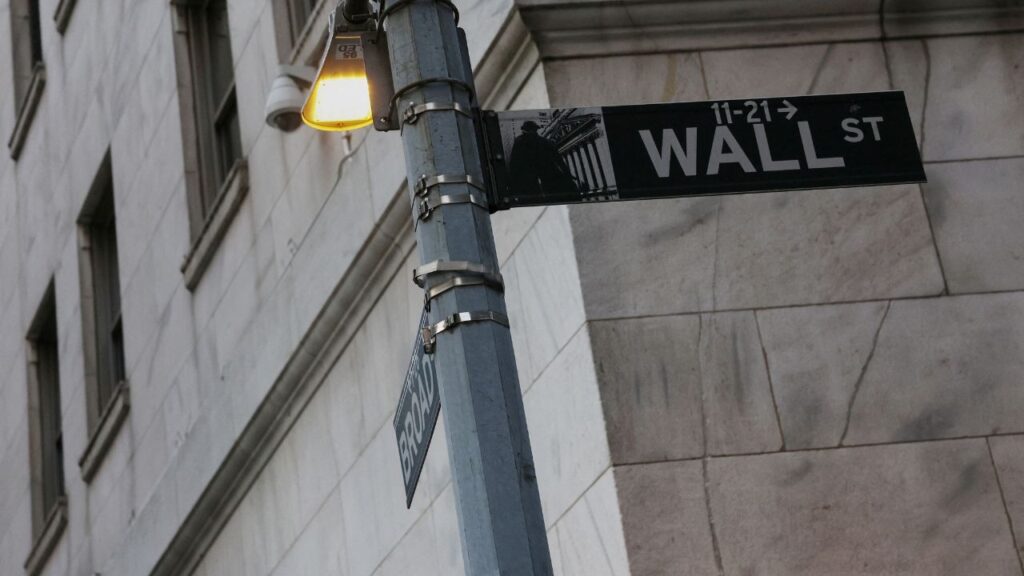
Wall Street Rises After Soft Jobs Report
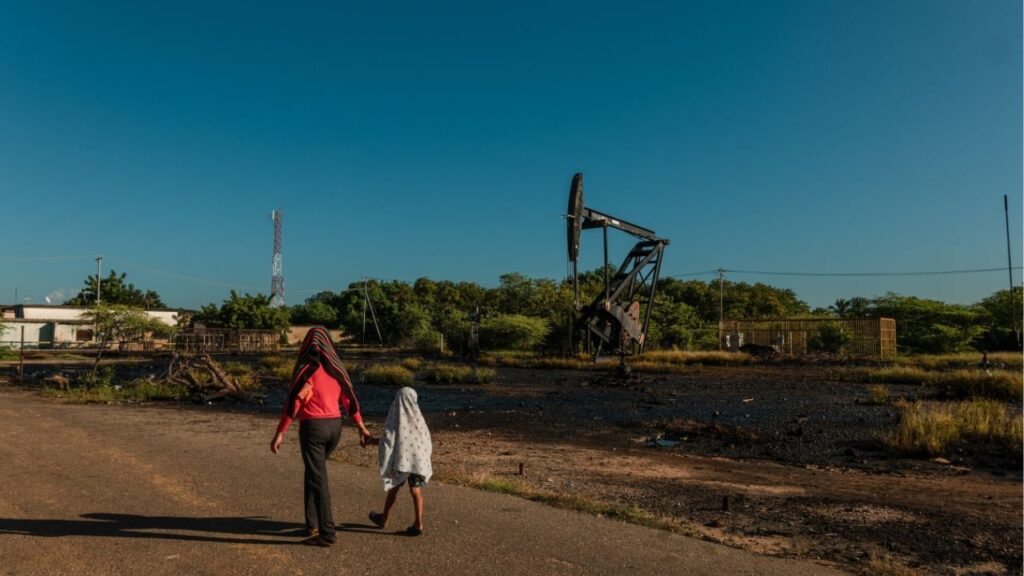
Senate Advances Measure to Curb Trump’s Use of Force in Venezuela
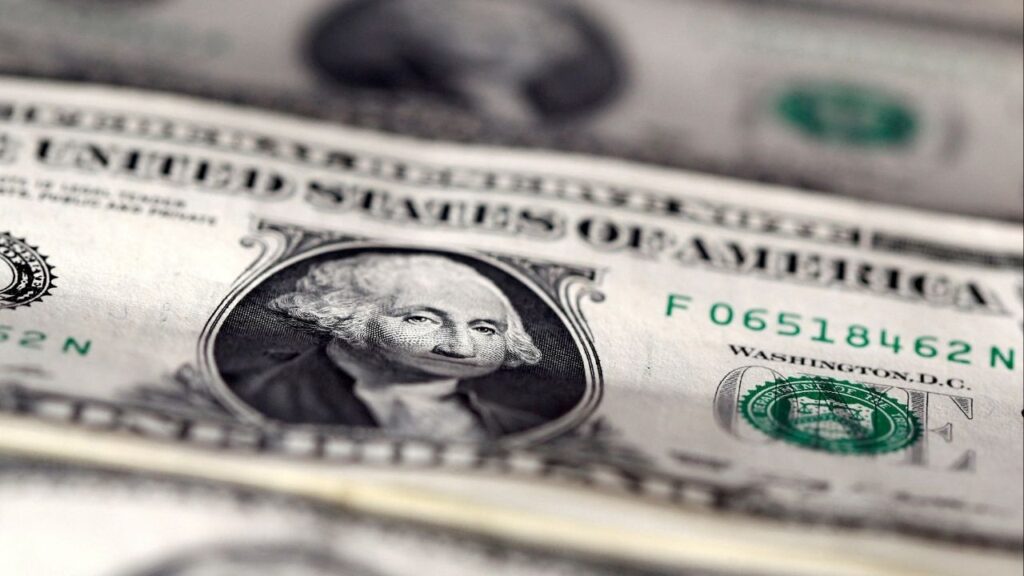
Dollar Gains Against Major Currencies Following US Jobs Data








